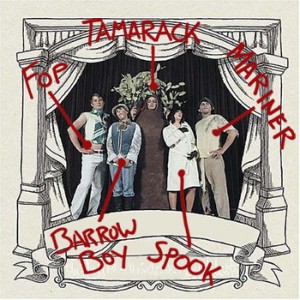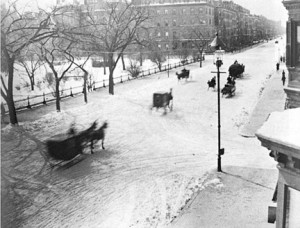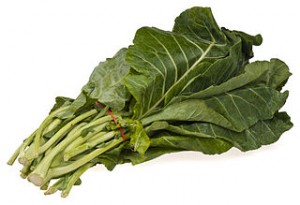The Annotated Decemberists No. 10: “A Cautionary Song”
 Perhaps no band’s lyrics better lend themselves to pseudo-academic analysis than those of The Decemberists. The Annotated Decemberists is an attempt to puzzle through the Portland, Oregon, group’s entire catalog song by song—examining all the obscure vocabulary, historical references and poetic subtext—or go crazy trying.
Perhaps no band’s lyrics better lend themselves to pseudo-academic analysis than those of The Decemberists. The Annotated Decemberists is an attempt to puzzle through the Portland, Oregon, group’s entire catalog song by song—examining all the obscure vocabulary, historical references and poetic subtext—or go crazy trying.
This song is a bit problematic. I’ve been dreading writing about it ever since I started in on Castaways and Cutouts, because essentially what we have is a fairly horrific description of the gang rape of a prostitute set to jaunty accordion music. While it’s not exactly played for laughs, it is a bit quirky—it can’t help but be with that oom-pah rhythm. The theme of women at the mercy of dastardly scoundrels comes up again and again in The Decemberists’ discography, but nowhere else is Colin Meloy quite so … flip about it. And then there’s the grim punchline at the end of the song, which confirms the song’s setup: This whole cautionary tale is being told like a bedtime story to a child as some sort of ill-conceived lesson about appreciating one’s mother. It’s a bit disturbing and discomforting if you stop to think about it too much. It has kind of ruined the song for me. I’ve probably ruined it for you, too.
Well, there it is.
“A Cautionary Song”
from Castaways and Cutouts, 2002

There’s a place your mother goes when everybody else is soundly sleeping
Through the lights of Beacon Street[1], and if you listen you can hear her weeping
She’s weeping
‘Cause the gentlemen are calling
And the snow is softly falling on her petticoats[2]
And she’s standing in the harbor
And she’s waiting for the sailors in the jolly boat[3]
See how they approach
With dirty hands and trousers torn they grapple[4] ’til she’s safe within their keeping
A gag is placed between her lips to keep her sorry tongue from any speaking
Or screaming
And they row her out to packets[5]
Where the sailor’s sorry racket[6] calls for maidenhead[7]
And they’re scarce above the gunwales[8]
When her clothes fall to a bundle and she’s laid in bed
On the upper deck[9]

And so she goes from ship to ship, her ankles clasped, her arms so rudely pinioned[10]
‘Til at last she’s satisfied the lot of the marina’s teeming[11] minions[12]
In their opinion
And they tell her not to say a thing
To cousin, kindred, kith[13] or kin or she’ll end up dead
And they throw her thirty dollars[14]
And return her to the harbor where she goes to bed
And this is how your fed
So be kind to your mother
Though she may seem an awful bother
And the next time she tries to feed you collard greens …
Remember what she does when you’re asleep
- Most likely the major thoroughfare in Boston that forms the northern boundary of Boston Common. It actually doesn’t lead to Boston Harbor but instead heads westward through what is today the Back Bay neighborhood. Wikipedia reminds us that it is the street which the mother duck and her offspring cross in the children’s book Make Way for Ducklings, as well as the subject of the Nanci Griffith song Beacon Street.↑
- This is the album’s second reference to petticoats (the first being in “Leslie Ann Levine“) and the third reference to women’s undergarments in general. A petticoat, you’ll recall, is “a skirt, now esp. an underskirt often trimmed at the hemline as with lace or ruffles, worn by women and girls.”↑
- A small boat carried by a larger ship and used to ferry people to and from shore. Theories about the origin of the name include it being a variation of jolle, an old German word for “dinghy.”↑
- A double meaning. To grapple is both a nautical technique (using hooks to secure a boat to something, such as enemy ship in a naval battle) as well as a general term for seizing a person.”↑
- “packet n. 3 a boat, usually a coastal or river steamer, that plies a regular route and carries passengers, freight, and mail.”↑
- “n. 2 a dishonest business or practice, especially one that obtains money through fraud or extortion.”↑
- “n. 1 the condition or quality of being a maiden; virginity. 2 the hymen.”↑
- “gunwale n. 1 the upper edge of a ship’s or boat’s side.”↑
- “n. 1 a platform in a ship serving usually as a structural element and forming the floor for its compartments.”↑
- “pinion v. 1 a to disable or restrain by binding the arms. b to bind fast; shackle.”↑
- “teem v. 2 a to become filled to overflowing; abound. b to be present in large quantity.”↑
- “minion n. 1 a servile dependent, follower, or underling. 3 a subordinate or petty official.”↑
- An old word meaning “friends,” often paired with “kin” as an idiom for “friends and family.”↑
- Depending on when this story is set, the value could vary widely. For example, $30 in 1850 is the equivalent of about $775 today … not that any amount is worth the deplorable scene described above. That is most definitely not what I’m saying.↑
One Reply to “The Annotated Decemberists No. 10: “A Cautionary Song””